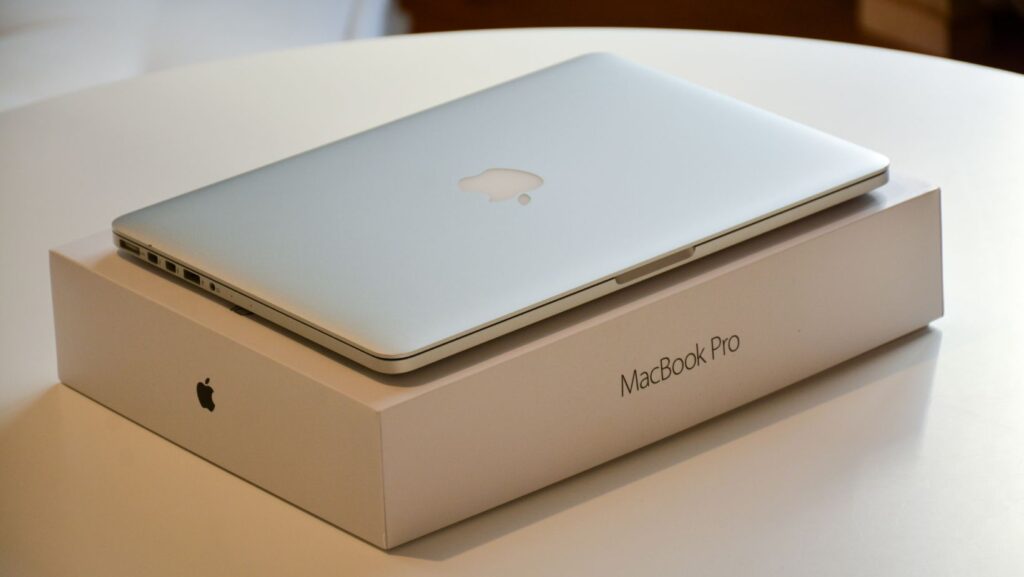In the rapidly evolving world of technology, buying a computer isn’t as simple as picking the shiniest model off the shelf. It’s a decision that requires careful consideration and a keen understanding of your specific needs. This article will dive into the intricate world of computer purchasing, providing clarity and confidence for your next tech investment.
Computers Purchasing
The realm of computers purchasing contains multitudes, transcending the intricacies of specs, brand preferences, and functionality. The journey starts with one crucial step: understanding the nuances of usage scenarios, followed by discerning the key components to consider when buying a computer.
Assessing Usage Scenarios
 Initial preparations involve assessing usage scenarios. It’s paramount significance becomes apparent by answering these questions: What type of computer user are you, and what are your most frequent tasks?
Initial preparations involve assessing usage scenarios. It’s paramount significance becomes apparent by answering these questions: What type of computer user are you, and what are your most frequent tasks?
- Professional Use: A graphic designer, for instance, requires a computer that handles high-resolution designs, 3D modeling, and video editing. Brand options like Apple’s MacBook Pro, with its superior graphics performance, render this possible.
- Academics: A student might lean towards portability and battery life, finding Chromebooks or compact Windows laptops as worthy companions.
- Gaming: Gamers covet computers with powerful processors, extensive memory, and high-end graphics cards. Models like Alienware Area-51m or the Razer Blade Pro 17 excel in this domain.
Setting a Budget for Your Computer Purchase
In the realm of computer purchasing, defining a budget counts as a pivotal step. It helps buyers align their monetary resources with the costs of various computer types and components. When accomplished thoughtfully, budgeting can assure a balanced alignment between one’s financial capabilities and computer needs.
The Cost-Benefit Analysis
Achieving a balanced computer purchase lies in the comprehensive exercise of a cost-benefit analysis. It’s a strategic evaluation one undertakes to compare the value of potential computer selections with the costs for each. This evaluation includes quantifying one’s specific computer needs, preferences, and the financial ability that she or he holds.
Simultaneously, buyers analyze potential computers for characteristics such as processing capabilities, graphics performance, and storage options. The aim of the analysis lies in ensuring that the chosen computer satisfies defined needs but doesn’t extend beyond budgetary boundaries.
Operating Systems and Compatibility
Having determined one’s specific needs, budgetary constraints, and potential cost-benefit outcomes, computers purchasing is poised at a significant juncture, the selection of an operating system. The operating system lays the foundation for users’ experience and tasks realization. Therefore, a detailed comprehension of Windows, macOS, and Linux is crucial before making a choice.
Windows, macOS, or Linux?
When it comes to choosing between Windows, macOS, or Linux, individuals’ tasks, usability requirements, and personal preferences weigh in heavily. Microsoft’s Windows, for example, maintains an ubiquitous presence worldwide, offers compatibility with an impressive array of software titles, and is a favorable choice for gamers and corporate users. Moreover, Windows PCs are available in various models and price ranges making them an accessible choice, regardless of one’s expenditure limit.
Windows, for example, maintains an ubiquitous presence worldwide, offers compatibility with an impressive array of software titles, and is a favorable choice for gamers and corporate users. Moreover, Windows PCs are available in various models and price ranges making them an accessible choice, regardless of one’s expenditure limit.
In contrast to Windows, macOS, Apple’s proprietary system, offers a seamless connectivity between Apple devices, a streamlined user interface, and robust security features. However, macOS is exclusively available on Apple computers, which are generally more expensive than competing Windows-based machines. While users will find satisfaction in Apple’s top-notch design and customer support, the high price tag can be a limiting factor.
Then there’s Linux. Unlike the other two platforms, Linux is an open-source system. This implies free access to a secure system, sonorous customization possibilities, and extensive developer support. Although Linux lacks the commercial support and software compatibility enjoyed by Windows and macOS, it’s an excellent choice for those invested in coding, server management, or anyone valuing autonomy over their computer environment.
In essence, appropriate operating system selection is a pivotal element of the computers purchasing process. It inherently connects with users’ needs, aligning with their specific requirements and comfort ethos. Consequently, the definition of the ‘best’ system is purely subjective, varying from individual to individual, making it imperative to understand the nuances of Windows, macOS, and Linux.
